Subscribe to the Newsletter
Your cart is empty
Shop now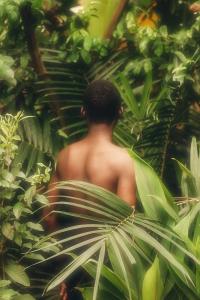

Local Voices: Nigerian Imagescape(s)
Charting contemporary local voices of Nigeria in photography
"Local Voices" is the digital media platform that narrates the creative horizon of image culture, country by country: showcasing the photographers, institutions, and independent players shaping the contemporary imagescape(s). Today, we will introduce Nigeria and its contemporary photographic scene. This article is an exercise in co-writing, aimed at creating an ever-growing digital archive on the world of contemporary photography and visual culture, highlighting the makers and key players in specific areas.
After Nigeria gained independence in 1960, there was a notable increase in the number of photographers and photography studios across the country. These photographers began capturing intimate and detailed images telling stories through their lenses. Many focused on documenting the rich social and cultural aspects of Nigerian life, showcasing its diverse cultures, festivals, and ceremonies. The Nigerian Civil War, which occurred from 1967 to 1970, profoundly affected photography in Nigeria, as numerous photographers recorded the war and its aftermath, offering invaluable insights into the nation’s history.
Today, the cities of Lagos and Abuja, the nation’s capital, offer a vibrant mix of emerging and established venues for creatives and photographers, including galleries, studios, cultural spaces, and institutes.
Thought Pyramid Art Centre is an Abuja-based gallery that promotes African art, including photography, and regularly hosts exhibitions and cultural events that fosters connections among local creatives. Abuja is also home for the National Gallery of Art (NGA), also operating a significant branch in Lagos known as the National Gallery of Modern Art. The NGA ensures the preservation of photographic works by archiving particularly those reflecting Nigeria's diverse cultures, histories, and contemporary realities. Additionally, the NGA provides platforms for emerging and established photographers to showcase their works and run workshops and seminars.
In Lagos, the Centre for Contemporary Art (CCA) was founded in 2007 by art curator Bisi Silva as an independent non-profit making visual art organization for photography too, acknowledging not only the medium relevance in the history of the country but also the growing implications within the social and economic dimensions of contemporary Nigeria.
When looking at more independent spaces, the NIele Institute in Lagos stands out for its mission in amplifying Pan-African lens-based visual arts, particularly photography and video art. Serving as a resource center, laboratory, learning space, and experimental workstation, it focuses on nurturing and developing young Nigerian artists from diverse backgrounds.
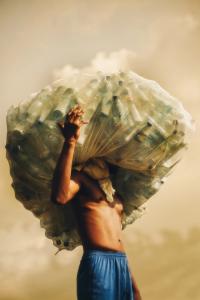
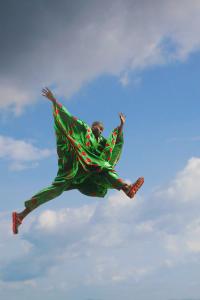
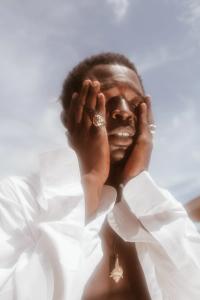
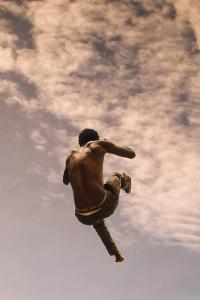




Much of Adedolapo Boluwatife’s documentary work is deeply rooted in environment and societal issues. Warm and soft hues convey ethereal feelings, while expressing Boluwatife’s connection to his environment, through beauty and raising awareness of nature and people’s resilience. Reflecting on his practice, he explains, “Through projects on environmental challenges, mental well being and cultural identity, I explore how our surroundings shape us. It’s a way for me to contribute to conversations on both preserving nature and honoring our shared realities.” Boluwatife's work often features metaphorical elements, encouraging viewers to engage in introspection and dialogue about societal norms and environmental issues.
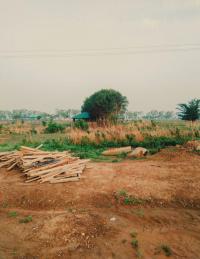
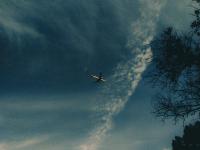
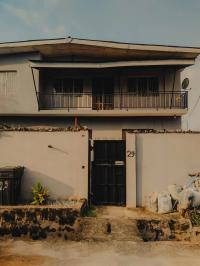







Emmanuel Lucky’s “Bonaventura” shows suburban Lagos and Abuja cities through phone snapshots. Lucky’s approach is intimate and personal. The series follows mostly his daily life: “Through documenting local life and places, I've gained a deeper appreciation for both the permanent and temporary elements that make this place unique–from its architecture and natural features to the fleeting moments of daily life that give it character,” says Lucky reflecting on his practice. The photos are an attempt to learn about his heritage through a quiet and still aesthetic.
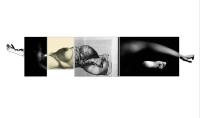
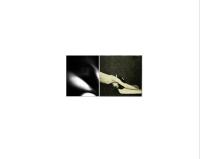
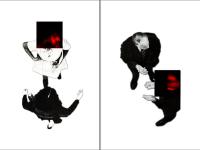
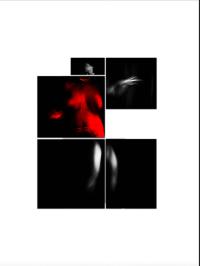
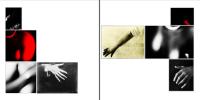





Born, raised and based in Lagos, Mobolaji Ogunrosoye is a visual artist working with collage and photography to explore distortions, female bodies and African diaspora narratives within the context of African contemporary socioscape. Her project “Contrast in Loveliness” explores themes of identity, memory, and cultural heritage. Using archival imagery and self-portraiture, Ogunrosoye overlays and layers images to create complex visual compositions that interrogate personal and collective histories. Through this, she examines how history and culture shape individual and societal narratives. The project reflects on the tension between self-perception and external representation, offering a nuanced dialogue about belonging and legacy.

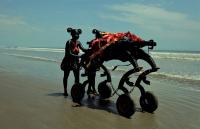
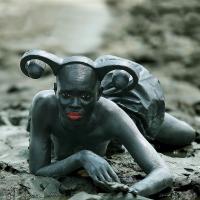
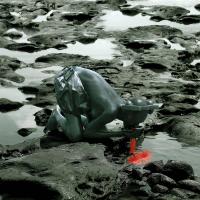
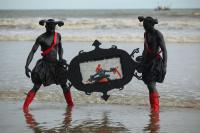





“Niger-Delta/Future-Cosmos” (2010 – 2021) is Wilfred Ukpong’s latest photographic and film project conceived and developed as a part of “Blazing Century 1”, a multifaceted creative participatory initiative involving over two hundred marginalized yet talented young people from the environmentally devastated oil-producing communities of the Niger Delta, his place of birth in Southern Nigeria. “My work is embedded in experimental processes that examine the broad relationship between art and social change, decolonisation, environmental and ecological activism, racial justice, and cultural revitalisation,” asserts Ukpong.